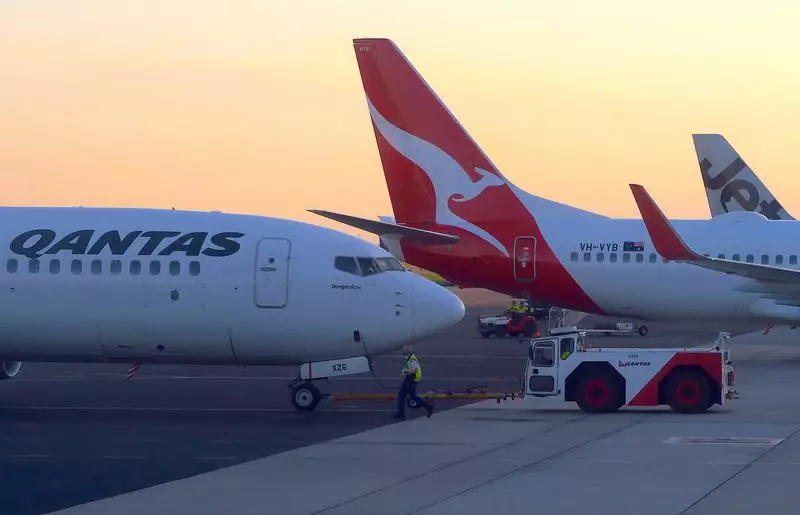The recent ruling by the Federal Court of Australia presents a significant setback for Qantas Airways, revealing the complex legal aftermath of its decision to outsource ground handling operations during the COVID-19 pandemic. The court’s judgement mandates the airline to compensate three baggage handlers, with totals amounting to A$170,000 (approximately $114,000). This legal decision is emblematic of broader issues surrounding labor rights and ethical management practices during turbulent economic times.
Judge Michael Lee’s verdict determined that the dismissals of the three employees were unlawful, reflecting the indiscriminate nature of Qantas’ cost-cutting measures. Each worker will receive compensation for non-economic loss, with the distributions set at A$30,000, A$40,000, and A$100,000. This financial restitution highlights the severity of the harm inflicted upon employees who lost their livelihoods as part of what the judge characterized as an unjust move aimed at circumventing potential industrial action.
Additionally, this ruling is not just about these three workers. It acts as a precursor for the broader legal challenge that could affect approximately 1,700 other former employees. The carrier’s attempt to justify the sackings as a necessary pandemic response falls short in light of the judge’s suggestion that had Qantas approached the transition lawfully, it could have avoided the turmoil altogether.
The ruling serves as an indictment of Qantas’ handling of its workforce amidst the crisis. The airline, which has battled significantly negative publicity during and after the pandemic, is now faced with the prospect of not only financial restitution but also the challenge of restoring its corporate image. Recently, Qantas settled another lawsuit for A$120 million over claims related to selling tickets for cancelled flights, adding to its ongoing legal tribulations.
Qantas has attempted to project a fresh narrative since the arrival of CEO Vanessa Hudson, who has expressed remorse and a commitment for improvement. However, critics argue that merely conveying an intention to change is insufficient in light of the damage already inflicted upon employees and the trust that has been eroded.
The Transport Workers Union (TWU), which represented the dismissed employees, has called for Qantas to ensure fair compensation not just through court stipulations but also in its evolving corporate culture. Michael Kaine, the national secretary of the TWU, has voiced the necessity for Qantas to genuinely commit to change and accountability.
As Qantas braces for further discussions about compensation and potential negotiations with the union, it faces an urgent imperative: to not only financially recompense its past mistakes but to foster a more equitable and respectful working environment moving forward. The court’s directive to return by mid-November sets the stage for what will be a revealing moment of reckoning for Qantas, demonstrating whether it can indeed turn over a new leaf in its relations with employees and labor groups alike. The ongoing situation will serve as a critical litmus test for Qantas in its journey towards rebuilding trust and maintaining ethical business practices.

